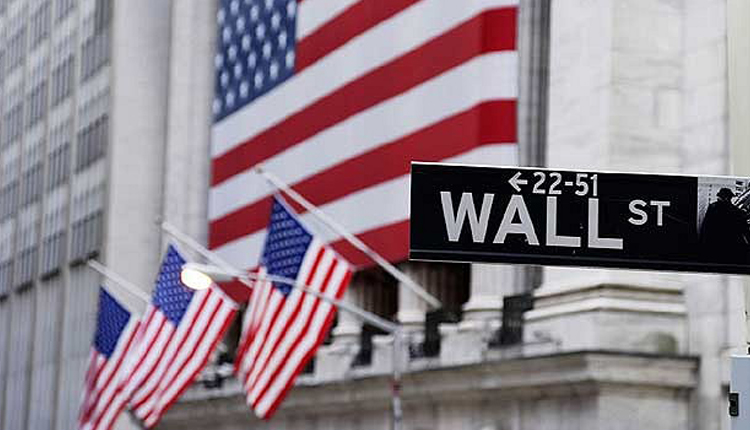The Dow Jones Industrial Average fell 602 points on Monday after a big decline in Apple shares, a rise in the U.S. dollar and lingering worries about global trade weighed on investor sentiment.
Monday’s losses bring the Dow’s decline over the past two sessions to 804 points; it closed at 25,387.18. The tech-heavy Nasdaq Composite pulled back 2.8 percent to 7,200.87 and fell back into the correction territory it first entered during the October market rout.
The S&P 500 dropped 2 percent to 2,726.22 as financials tanked, led by Goldman Sachs.
In late-afternoon trading, the major indexes hit their lows of the day after Bloomberg News reported the White House was circulating a draft report on auto tariffs. Shares of General Motors turned negative following the report.
Apple shares tanked by 5 percent after Lumentum Holdings, which makes technology for the iPhone’s face-recognition function, cut its outlook for financial second quarter 2019. Lumentum CEO Alan Lowe said one of its largest customers asked the company to “materially reduce shipments” for its products. Shares of Lumentum plunged 33 percent.
The decline in Apple pressured the broader technology sector. The Technology Select Sector SPDR dropped 3.5 percent. Alphabet and Amazon shares pulled back 2.7 percent and 4.3 percent, respectively.
Amazon shares fell into bear-market territory, down about 20 percent from its 52-week high. A little more than two months ago, the online retailer was worth $1 trillion.
The S&P 500 tech sector itself traded in correction territory, down more than 10 percent from its 52-week high. Within the sector, nearly 70 percent of the stocks were at least in a correction.
Peter Boockvar, chief investment officer at Bleakley Advisory Group, said “the FANG trade is dead and the market is struggling to find a replacement.”
Goldman shares posted their biggest drop in seven years after a report Malaysia’s finance minister demanded a refund of fees paid the firm for its work in scandal-plagued state investment fund 1MDB.
A strong dollar also pressured equities as investors worried about what it would do to overseas sales for multinationals. The dollar index hit a high of 97.58, its highest level since June 23, 2017. The U.S. currency also hit a more than one-year high against the euro and Swiss franc.
“This is a time to consider reducing risk rather than adding risk,” said Tom Martin, senior portfolio manager at Globalt. “It’s not like we’re at the start of a cyclical bear market, but being cautious” would be wise.
Axios reported that President Donald Trump thinks threatening more tariffs on overseas-made cars is his best negotiating tactic on trade. The report said Trump has told aides he was able to get a better trade deal with Canada because he threatened Canadian Prime Minister Justin Trudeau with levies on cars made in Canada.
Trump has been considering slapping a 25 percent charge on cars made outside the U.S. since earlier in the year. Automakers and foreign governments have criticized Trump for this, noting such a levee would boost car costs and hurt sales and jobs.
The Axios report comes as Trump and Chinese President Xi Jinping get set to meet at the G-20 summit later this month.
Haibin Zhu of J.P. Morgan, said in a note there is a 55 percent chance the two leaders fail to come to an agreement at the summit.
“We remain cautious, as the challenge to address US-China conflict remains high,” Zhu said. “The US-China conflict extends beyond trade to areas such as technology, intellectual property rights, market access, industry policy, and ultimately centers on the competition between the two economic superpowers.”
“It is not clear whether China is willing to make visible changes beyond trade (e.g. market access, IP protection, technology), and whether the US will prioritize its demand list,” Zhu added.
Apple’s decline and worries over trade overshadowed two large corporate deals.
SAP agreed to buy Qualtrics, a privately held company that competes with SurveyMonkey, for $8 billion. Meanwhile, Veritas Capital and Elliott Management agreed to buy Athenahealth for more than $5 billion.
General Electric shares fell 6.9 percent to close below $8 after CEO Larry Culp told CNBC’s David Faber that he feels the “urgency” to reduce some of the company’s leverage, adding they will do this by selling assets.
Source: CNBC
